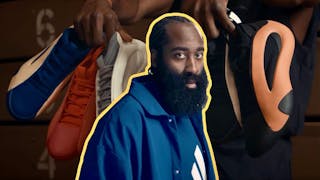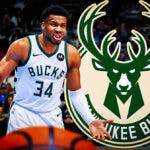Damian Lillard almost looked like his All-NBA self in the Portland Trail Blazers' hard-fought 117-109 loss to the LA Clippers on Tuesday night at Staples Center.
He scored a game-high 27 points and doled out six assists, playing maestro for a Blazers offense that at times played well as it ever has over the first three weeks of the regular season. Lillard went just 4-of-13 from beyond the arc, continuing his early long-range struggles, but still connected on an array of difficult jumpers en route to 11-of-23 shooting overall.
He even briefly took over in the fourth quarter, running off seven quick points on three shots to force a timeout from Ty Lue and bring his team within six. If Lillard's injured abdomen hadn't “locked up”—his description of the incident post-game—on an uncontested finger roll after the seas parted on the Blazers' next possession, crunch-time really might have become Dame Time. There hasn't been another game in the season's early going in which that's even seemed possible.
Lillard wasn't harping on still not quite finding his jumper or even his longstanding abdominal discomfort after Portland's fifth straight road defeat to open 2021-22, though. What irked him most about Tuesday night's game was the continuation of a trend that's apparently been affecting his performance all season: Officials, at least in Lillard's opinion, taking new rule changes about “abnormal” motions from foul-hunting offensive players too far.
“I feel like the way the game is being officiated is unacceptable,” he said. “I don't wanna go too deep into it so they make a big deal out of it, but the explanations, the shit that's getting missed. I mean, come on. I felt like coming in the rule change wouldn't affect me because I don't do the trick the referees, I don't do the trick plays. It's just unacceptable, man.”
Lillard lobbied all night for more whistles from a handsy, physical Clippers defense. He could be seen angrily gesturing at the officials while leaving the floor just before the final buzzer. Lillard, clearly, didn't just dislike how the referees were calling the game; he was also left frustrated by the justification they gave for doing so.
“Then the explanations and remarks when you're telling 'em, it's just like…I don't even have nothing else to say about it,” Lillard said.
There were obvious moments Portland deserved a call on Tuesday night and didn't get it. The same goes for LA. Even as referees successfully implement a rule change meant to outlaw abnormal shooting motions and non-basketball plays, there exists a sense league-wide—especially among ball handlers—that they're letting defenders get away with too much contact.
Lillard should've gotten two free throws here. Ivica Zubac clearly impedes his movement on the drive, raking him across the body with the right hand.
Did Lillard accentuate the contact by stopping short for a runner? Maybe, but what's just as plausible is that he picked up his dribble because he couldn't continue it after taking contact from Zubac. It shouldn't matter either way; a foul is a foul.
The Blazers played stints of their best basketball against the Clippers, pinging the rock from side to side in the halfcourt and making multiple sustained efforts on the other end. Chauncey Billups had bigs drop below the level of ball screens on Tuesday, a major departure from Portland's normal defensive scheme this season—and one worth keeping against certain opponents or for a mid-game changeup. Lillard seemed to do more work off the ball than ever, finding gaps in the defense for two-point jumpers. Norman Powell and Jusuf Nurkic were downright dominant for isolated stretches in the first and second halves, respectively.
There were good things to take from this game for the Blazers, late-game lapses in defensive focus be damned. And if Lillard, who attempted just one free throw, had received the whistle he thinks he earned, maybe it would've resulted in Portland's much-needed first road win instead of a hard-fought defeat worth building on.




